第44章
It is clear that the body of an animal cannot be simple, i.e. consist of one element such as fire or air. For without touch it is impossible to have any other sense; for every body that has soul in it must, as we have said, be capable of touch. All the other elements with the exception of earth can constitute organs of sense, but all of them bring about perception only through something else, viz. through the media. Touch takes place by direct contact with its objects, whence also its name. All the other organs of sense, no doubt, perceive by contact, only the contact is mediate: touch alone perceives by immediate contact. Consequently no animal body can consist of these other elements.
Nor can it consist solely of earth. For touch is as it were a mean between all tangible qualities, and its organ is capable of receiving not only all the specific qualities which characterize earth, but also the hot and the cold and all other tangible qualities whatsoever. That is why we have no sensation by means of bones, hair, &c., because they consist of earth. So too plants, because they consist of earth, have no sensation. Without touch there can be no other sense, and the organ of touch cannot consist of earth or of any other single element.
It is evident, therefore, that the loss of this one sense alone must bring about the death of an animal. For as on the one hand nothing which is not an animal can have this sense, so on the other it is the only one which is indispensably necessary to what is an animal.
This explains, further, the following difference between the other senses and touch. In the case of all the others excess of intensity in the qualities which they apprehend, i.e. excess of intensity in colour, sound, and smell, destroys not the but only the organs of the sense (except incidentally, as when the sound is accompanied by an impact or shock, or where through the objects of sight or of smell certain other things are set in motion, which destroy by contact); flavour also destroys only in so far as it is at the same time tangible. But excess of intensity in tangible qualities, e.g. heat, cold, or hardness, destroys the animal itself. As in the case of every sensible quality excess destroys the organ, so here what is tangible destroys touch, which is the essential mark of life; for it has been shown that without touch it is impossible for an animal to be. That is why excess in intensity of tangible qualities destroys not merely the organ, but the animal itself, because this is the only sense which it must have.
All the other senses are necessary to animals, as we have said, not for their being, but for their well-being. Such, e.g. is sight, which, since it lives in air or water, or generally in what is pellucid, it must have in order to see, and taste because of what is pleasant or painful to it, in order that it may perceive these qualities in its nutriment and so may desire to be set in motion, and hearing that it may have communication made to it, and a tongue that it may communicate with its fellows.